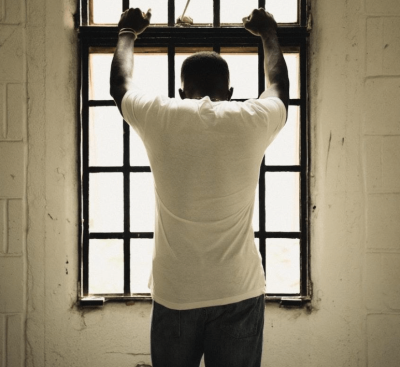 Have you been arrested for domestic violence charges in Florida? If so, you are most likely facing time behind bars if you are convicted. Under Florida law, judges must impose mandatory minimum jail sentences for those convicted of first-degree misdemeanor domestic battery. There are also more severe felony domestic violence offenses that carry significant jail time. In addition to jail time, you could face fines, probation, and other penalties if you are convicted of domestic violence in Florida.
Have you been arrested for domestic violence charges in Florida? If so, you are most likely facing time behind bars if you are convicted. Under Florida law, judges must impose mandatory minimum jail sentences for those convicted of first-degree misdemeanor domestic battery. There are also more severe felony domestic violence offenses that carry significant jail time. In addition to jail time, you could face fines, probation, and other penalties if you are convicted of domestic violence in Florida.
Jail Time for Domestic Violence Charges in Florida
If a court finds you guilty of domestic violence in Florida, you could face mandatory minimum jail or prison time. Domestic violence crimes include domestic battery and felony domestic battery. If you are charged with a misdemeanor domestic violence crime, the maximum penalty will be under a year of jail time. However, felony domestic violence charges always involve at least a year of jail time. In Florida, domestic violence charges include intentionally injuring one of the following people:
- A spouse
- A former spouse
- A live-in partner
- A former live-in partner
- The other parent of your child
The maximum prison sentence varies from one year in jail to five years or more for these crimes. However, the minimum jail sentence is the same across the board. You may be required to spend time in a county jail or a state correctional facility. Mandatory minimum jail time for domestic violence crimes in Florida include the following:
- 10 days for the first offense
- 15 days for a second offense
- 20 days for a subsequent offense
In some cases, your jail sentence could include significantly more time behind bars than the mandatory minimum time frame mentioned above. If you are facing more jail time than the mandatory minimum, we may be able to successfully request that the judge probate part or all of your jail time be on the mandatory minimum. In other words, you would spend the jail time exceeding the mandatory minimum on probation instead of in jail.
Other Penalties for Domestic Violence Charges
In addition to serving time in jail, being convicted of domestic violence carries other types of penalties. You will need to complete a batterers intervention program, and the judge may require you to complete additional community service hours above your jail sentence. You can also lose other civil rights, such as your concealed carry rights.
If you are the subject of a protection order, you could lose the right to contact the victim or your children. You will be ineligible to have your criminal record sealed or expunged, regardless of whether adjudication is withheld. In other words, if you’re convicted of domestic violence, you will have a lifetime criminal record for that offense.
Mandatory Jail Time if Your Child or the Victim’s Child Witnessed the Domestic Violence
Certain factors will increase the mandatory minimum jail sentence in your case. For example, if your child, the victim’s child, or another child who lives with you or the victim witnesses the alleged domestic violence occurring, you will face harder sentencing. Florida domestic violence laws are particularly tough on defendants who commit domestic violence in front of children under 16.
Suppose the alleged incident involved a baby, child, or young teenager who witnessed the domestic violence incident, and you’re convicted. In that case, you could face additional mandatory jail time in a state correctional facility or county jail. These mandatory jail sentences are as follows:
- 15 days for a first offense
- 20 days for a second offense
- 30 days for a third or subsequent offense
Remember, the judge presiding over your case could sentence you to additional time behind bars for committing this type of crime. These mandatory minimum jail sentences refer to the jail time you are required to serve. The judge could add additional time or probate the rest of your sentence. Attorney Mark Solomon, P.A can help you understand The exact nature of the charges you are facing and the minimum and maximum amount of jail time you could face if you are convicted.
How to Fight Domestic Violence Charges in Florida
If you are facing accusations of domestic violence, you need to take action quickly to protect your rights. Developing a solid defense strategy will help you fight the charges you are facing. With Mark Solomon, P.A, on your side, you can rest assured that he will advocate strongly for the best outcome in your case. He takes a unique approach to domestic violence cases.
With an in-depth understanding of how prosecutors in South Florida prosecute domestic violence cases, he will provide you with effective legal representation. As soon as you discover that you may be facing jail time for domestic violence charges, you should contact attorney Mark Solomon, P.A. When a skilled defense lawyer can get involved in your case early, he may be able to:
- Uncover evidence that prevents the state attorney from filing domestic violence charges against you
- Persuade the state attorney to dismiss the domestic violence charges against you
- Negotiate to get your charges reduced, so you serve less time in jail
- Take your case to trial and strongly argue for acquittal
- Negotiate a favorable plea deal in which you will be convicted of a lesser crime that carries a lighter sentence
- Work with the court to probate as much of your sentence as possible, so you spend less time in jail
Discuss Your Case With a Florida Domestic Violence Lawyer
You do not have to fight domestic violence charges and navigate the criminal justice system alone. Attorney Mark Solomon, P.A, is an experienced criminal defense lawyer in South Florida who will provide you with the skilled legal defense you need. He has a proven track record of successfully defending clients charged with a variety of domestic violence-related crimes. Contact him today to schedule an initial consultation to learn more about how he may be able to help you prevent charges from being filed against you, avoid a conviction, or negotiate the best outcome possible in your case.

Leave A Comment